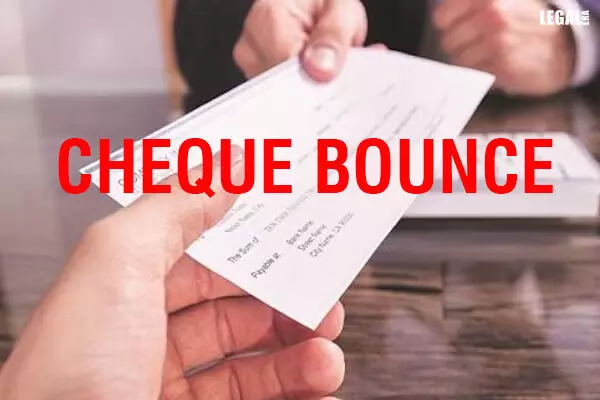- Home
- News
- Articles+
- Aerospace
- Artificial Intelligence
- Agriculture
- Alternate Dispute Resolution
- Arbitration & Mediation
- Banking and Finance
- Bankruptcy
- Book Review
- Bribery & Corruption
- Commercial Litigation
- Competition Law
- Conference Reports
- Consumer Products
- Contract
- Corporate Governance
- Corporate Law
- Covid-19
- Cryptocurrency
- Cybersecurity
- Data Protection
- Defence
- Digital Economy
- E-commerce
- Employment Law
- Energy and Natural Resources
- Entertainment and Sports Law
- Environmental Law
- Environmental, Social, and Governance
- Foreign Direct Investment
- Food and Beverage
- Gaming
- Health Care
- IBC Diaries
- In Focus
- Inclusion & Diversity
- Insurance Law
- Intellectual Property
- International Law
- IP & Tech Era
- Know the Law
- Labour Laws
- Law & Policy and Regulation
- Litigation
- Litigation Funding
- Manufacturing
- Mergers & Acquisitions
- NFTs
- Privacy
- Private Equity
- Project Finance
- Real Estate
- Risk and Compliance
- Student Corner
- Take On Board
- Tax
- Technology Media and Telecom
- Tributes
- Viewpoint
- Zoom In
- Law Firms
- In-House
- Rankings
- E-Magazine
- Legal Era TV
- Events
- Middle East
- Africa
- News
- Articles
- Aerospace
- Artificial Intelligence
- Agriculture
- Alternate Dispute Resolution
- Arbitration & Mediation
- Banking and Finance
- Bankruptcy
- Book Review
- Bribery & Corruption
- Commercial Litigation
- Competition Law
- Conference Reports
- Consumer Products
- Contract
- Corporate Governance
- Corporate Law
- Covid-19
- Cryptocurrency
- Cybersecurity
- Data Protection
- Defence
- Digital Economy
- E-commerce
- Employment Law
- Energy and Natural Resources
- Entertainment and Sports Law
- Environmental Law
- Environmental, Social, and Governance
- Foreign Direct Investment
- Food and Beverage
- Gaming
- Health Care
- IBC Diaries
- In Focus
- Inclusion & Diversity
- Insurance Law
- Intellectual Property
- International Law
- IP & Tech Era
- Know the Law
- Labour Laws
- Law & Policy and Regulation
- Litigation
- Litigation Funding
- Manufacturing
- Mergers & Acquisitions
- NFTs
- Privacy
- Private Equity
- Project Finance
- Real Estate
- Risk and Compliance
- Student Corner
- Take On Board
- Tax
- Technology Media and Telecom
- Tributes
- Viewpoint
- Zoom In
- Law Firms
- In-House
- Rankings
- E-Magazine
- Legal Era TV
- Events
- Middle East
- Africa
Supreme Court sets aside Andhra Pradesh High Court Judgment in Cheque Bounce Case

Supreme Court sets aside Andhra Pradesh High Court Judgment in Cheque Bounce Case
States that it could be quashed under Section 482 if the amount was patently non-recoverable
The Supreme Court has held that whether a cheque was issued towards a time-barred debt is to be decided on evidence under the Negotiable Instruments Act, 1881.
The bench of Justice AS Bopanna and Justice Prashant Kumar Mishra stated, "It is only in cases wherein an amount which is out and out non-recoverable, towards which a cheque is issued, dishonored and for recovery of which a criminal action is initiated, the question of threshold jurisdiction will arise. In such cases, the Court exercising jurisdiction under Section 482 CrPC will be justified in interfering but not otherwise."
Earlier, the Andhra Pradesh High Court quashed a cheque bounce complaint on the ground that the prosecution was not a legally recoverable debt.
It had referred to its judgments in the S. Natarajan vs. Sama Dharman & Anr. (2021) 6 SCC 413 case and the A.V. Murthy vs. B.S Nagabasavanna (2002) 2 SCC 642) case, which explained the scope of consideration in a petition filed under Section 482 of CrPC seeking quashing of a complaint filed under Section 138 of NI Act.
The Court observed, "Keeping in perspective the nature of the proceedings arising under the NI Act and also in view that the cheque is a promise to pay even if the debt is barred by time has in that circumstance kept the provision contained in Section 25(3) of the Contract Act. It has indicated that if the question of whether the debt or liability being barred by limitation was to be considered in such proceedings, it is to be decided based on the evidence to be adduced by the parties since the limitation is a mixed question of law and fact. Entertaining a petition under Section 482 CrPC to quash the proceedings at the stage earlier to the evidence would not be justified."
Even though it was contended that the cheque was issued in respect of the debt which was not enforceable or a liability that could not be recovered, the presumption under Section 139 would not be available.
The Apex Court Judges stated, "We do not see the need to tread that path to undertake an academic exercise on the aspect of the matter, since it indicates that the claim made in the complaint before the trial Court based on the cheque which was dishonored cannot be construed as time-barred and as such it cannot be classified as a debt which was not legally recoverable."
The bench noted that not only the amount was a legally recoverable debt, but the complaint was also filed within time. Thus, while restoring the complaint, it set aside the High Court judgment.



